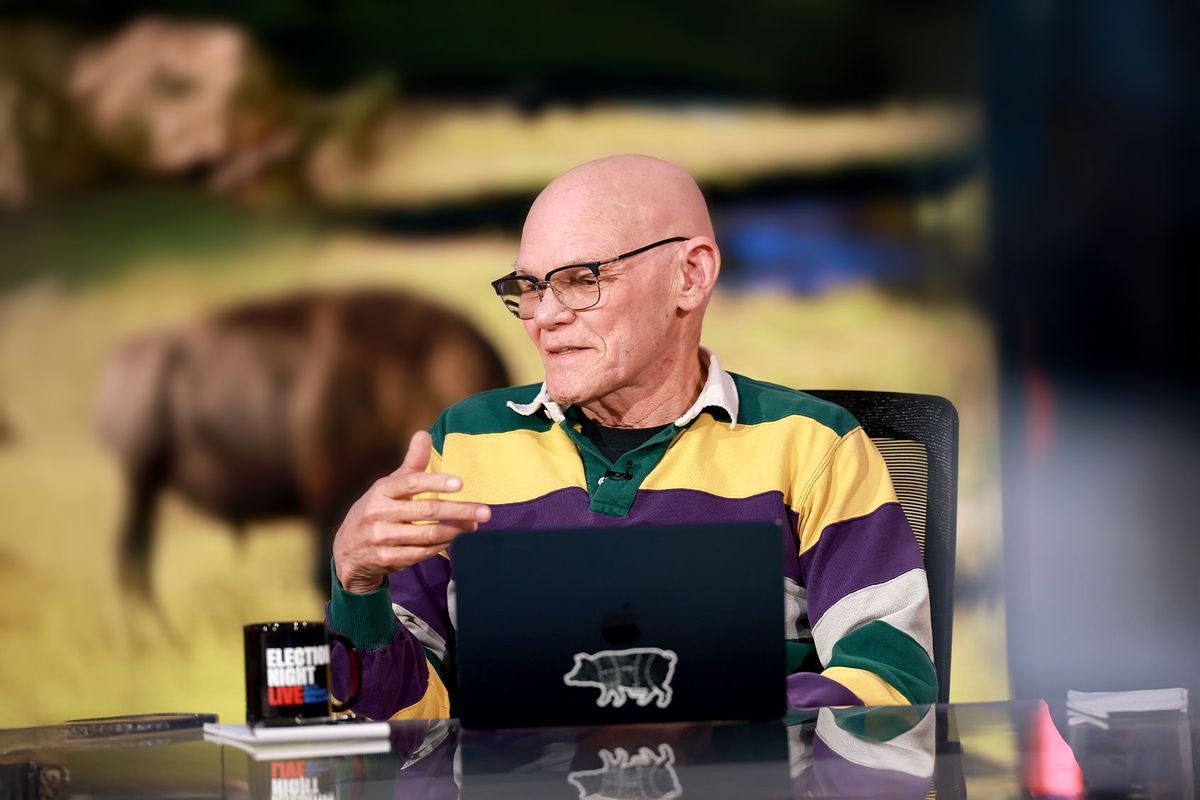In an election post-mortem where he admitted that he was "wrong" about Kamala Harris' chances, long-time Democratic strategist James Carville argued that the party needs to present a bold, populist opposition under Donald Trump’s upcoming administration.
The former advisor to Bill Clinton admitted he was off-base in the lead-up to the Democrats drubbing in November, acknowledging that Harris “flat-out lost the economic narrative” to Trump in an op-ed shared in the New York Times on Thursday. Carville suggested a change of course to win back voters swayed by Trump's promises of a booming economy.
“We must focus on revving up a transformed messaging machine for the new political paradigm,” Carville wrote. “Our central message must revolve around opposing Republicans’ tax cuts for the wealthiest Americans.”
Carville asked that Democratic lawmakers bring broadly popular legislation to the floor and “force Republicans to oppose us” on issues like raising the minimum wage and protecting abortion rights.
“We must be on the offensive with a wildly popular and populist economic agenda they cannot be for,” the campaign strategist argued. “Let’s start by forcing them to oppose a raise in the minimum wage to $15 an hour. Let’s make Roe v. Wade an economic messaging issue and force them to block our attempts to codify it into law.”
The 80-year-old warned Dems to stay focused on economic issues, declaring the stances winners over culture wars and pooh-poohing Trump’s criminal record.
“If we focus on anything else, we risk falling farther into the abyss,” Carville wrote. “Denouncing other Americans or their leader as miscreants is not going to win elections; focusing on their economic pain will.”
The one-time outspoken opponent of progressives like Sen. Bernie Sanders and Rep. Alexandria Ocasio-Cortez further demanded a new “creative, popular and bold economic agenda” from Democratic Party leadership.
Carville also argued the party needs to do a better job of reaching voters by embracing alternative media and nontraditional platforms for messaging purposes after the Trump campaign dominated coverage on podcasts and social media.
“To Democratic presidential hopefuls, your auditions for 2028 should be based on two things: 1) How authentic you are on the economy and 2) how well you deliver it on a podcast,” Carville wrote.



Shares